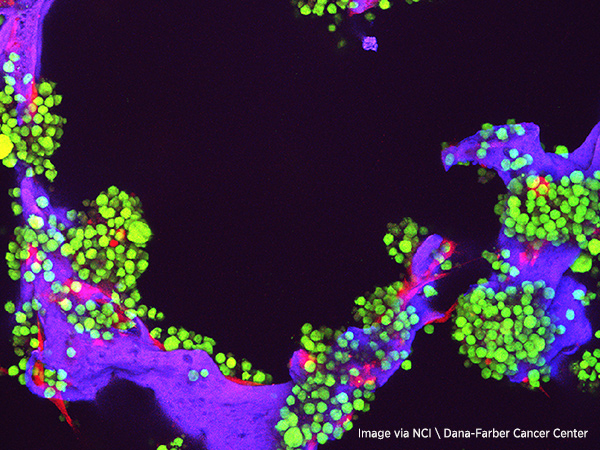Targeting Multiple Myeloma
The FDA approved the molecularly targeted therapeutic selinexor to be used in combination with another targeted agent and a synthetic corticosteroid to treat certain patients with multiple myeloma.

The U.S. Food and Drug Administration (FDA) has approved selinexor (Xpovio) in combination with bortezomib and dexamethasone to treat adult patients with refractory or relapsed multiple myeloma who have received at least one prior therapy. The FDA granted selinexor accelerated approval as a new molecularly targeted treatment in 2019 to be used in combination with dexamethasone for certain patients whose disease had relapsed or did not respond to various other treatments. This recent approval adds bortezomib to the mix in the continuing effort to offer an additional option for patients.
Bortezomib is a type of proteasome enzyme inhibitor that is designed to promote the process of cancer cell death.
Selinexor inhibits the function of a protein known as XPO1 that has been found to be elevated in multiple myeloma cells. The protein helps move many key cellular regulators, including tumor suppressor proteins, out of the nucleus of cells. Research studies have shown that inhibition of XPO1 causes tumor suppressor proteins to remain in the nucleus, where they can act to disrupt the growth of cancer cells.
Dexamethasone is a synthetic corticosteroid that has been used in the treatment plan for multiple myeloma for several years to help reduce inflammation and improve the immune system.
The efficacy of using selinexor in combination with bortezomib and dexamethasone was evaluated in a randomized open-label, multicenter, active comparator-controlled trial in patients who had received at least one but no more than three prior therapies. The main efficacy outcome was progression-free survival. The estimated median progression-free survival time was 13.9 months for the group of patients who received the three-therapy combination versus 9.5 months for the patients who received bortezomib and dexamethasone.
Federal statistics show there are more than 32,000 people diagnosed with multiple myeloma each year. New treatments such as proteasome inhibitors and other agents designed to improve the immune system response to the cancer have improved outcomes. However, many patients who initially respond to new therapeutics eventually relapse due to treatment resistance, thus making the development of new approaches paramount.
The FDA rendered its approval on December 18, 2020.
